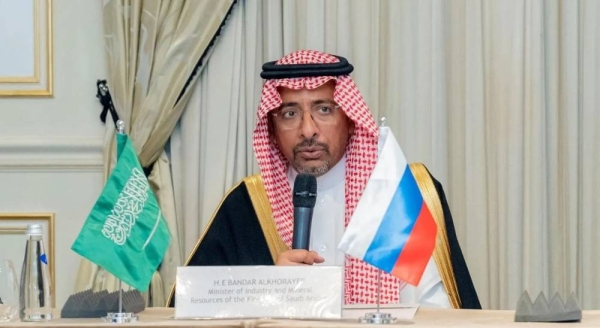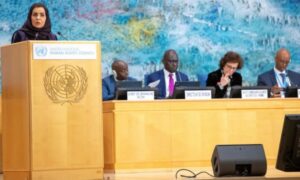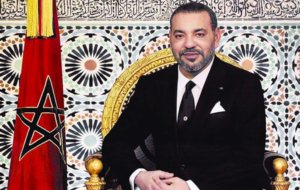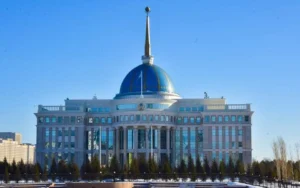Saudi Minister Explores Strategic Industrial and Mining Partnerships with Leading Russian Companies

Moscow, The Gulf Observer: Saudi Arabia’s Minister of Industry and Mineral Resources, Bandar AlKhorayef, concluded a series of high-level meetings in the Russian Federation aimed at strengthening bilateral industrial and mining partnerships and identifying new investment opportunities in key sectors such as mining, manufacturing, and food production.
During his official visit, Minister AlKhorayef met with senior executives from leading Russian companies, underlining the Kingdom’s commitment to developing a globally competitive mining and industrial ecosystem as part of Saudi Vision 2030.
In his meeting with the CEO of Alrosa, the world’s largest diamond mining company, the two sides discussed avenues for collaboration in mineral production and processing. Minister AlKhorayef highlighted Saudi Arabia’s enabling investment environment, designed to attract and support international mining ventures.
The minister also held strategic discussions with the CEO of VSMPO-AVISMA, the world’s top titanium producer, focusing on industrial cooperation and knowledge transfer. Talks centered on potential joint ventures in the production and processing of titanium for advanced sectors such as aviation, automotive, and high-tech industries. Saudi Arabia currently produces approximately 16,000 tons of titanium sponge annually—around 10% of global output—alongside 500,000 tons of titanium slag, primarily from facilities in Jazan.
In a separate meeting with the CEO of Nordgold, a prominent gold mining company, AlKhorayef presented Saudi Arabia’s extensive 2025 mineral exploration program, which will open up 50,000 square kilometers for exploration. Discussions also addressed sustainable mining practices, advanced technologies, and technical cooperation to accelerate sectoral growth.
Meeting with the Chairman of the Russian Aluminum Association, which represents over 80% of Russia’s aluminum value chain, AlKhorayef reaffirmed Saudi Arabia’s ambition to become a regional and global hub for aluminum production. With current output at 1.8 million tons of primary aluminum annually, the Kingdom aims to scale this to 3 million tons in the coming years. The minister stressed Saudi Arabia’s commitment to expanding domestic demand in key sectors such as aviation, automotive, packaging, and construction.
Given Russia’s position as the world’s second-largest aluminum producer after China, the dialogue highlighted the potential for joint investments across the full aluminum value chain. AlKhorayef also extended an invitation to Russian mining leaders to participate in the 5th edition of the Future Minerals Forum, scheduled for January 2026 in Riyadh—an event positioning the Kingdom at the forefront of global mining transformation.
Saudi Arabia is estimated to hold $2.5 trillion in untapped mineral resources, including gold, copper, phosphate, and rare earth elements. Under Vision 2030, the Kingdom aims to increase the mining sector’s contribution to GDP from $17 billion in 2024 to $75 billion by 2030, establishing it as the third pillar of the national industrial strategy. Recent reforms in mining investment regulations are designed to facilitate both domestic and international participation.
In the broader industrial sector, AlKhorayef met with executives from major Russian firms, including United Confectioners Limited—the largest confectionery manufacturer in Eastern Europe. Talks focused on investment opportunities in food manufacturing and advanced food production technologies.
With a market value of SAR 184 billion in 2023, Saudi Arabia’s food sector is the largest in the Middle East and is projected to grow to SAR 248 billion by 2035. The Kingdom is actively seeking over SAR 78 billion in industrial food investments through its National Industrial Strategy. Initiatives like the Jeddah Food Cluster, the world’s largest specialized industrial food complex, reflect the Kingdom’s ambition to lead the region in food industries.
Minister AlKhorayef also held discussions with the Chairman of Salavat Steklo, one of Russia’s leading float glass manufacturers, to explore cooperation and investment in the materials sector. The talks underscored Saudi Arabia’s competitive incentives for industrial investors and its strategic approach to fostering partnerships across priority industries.


